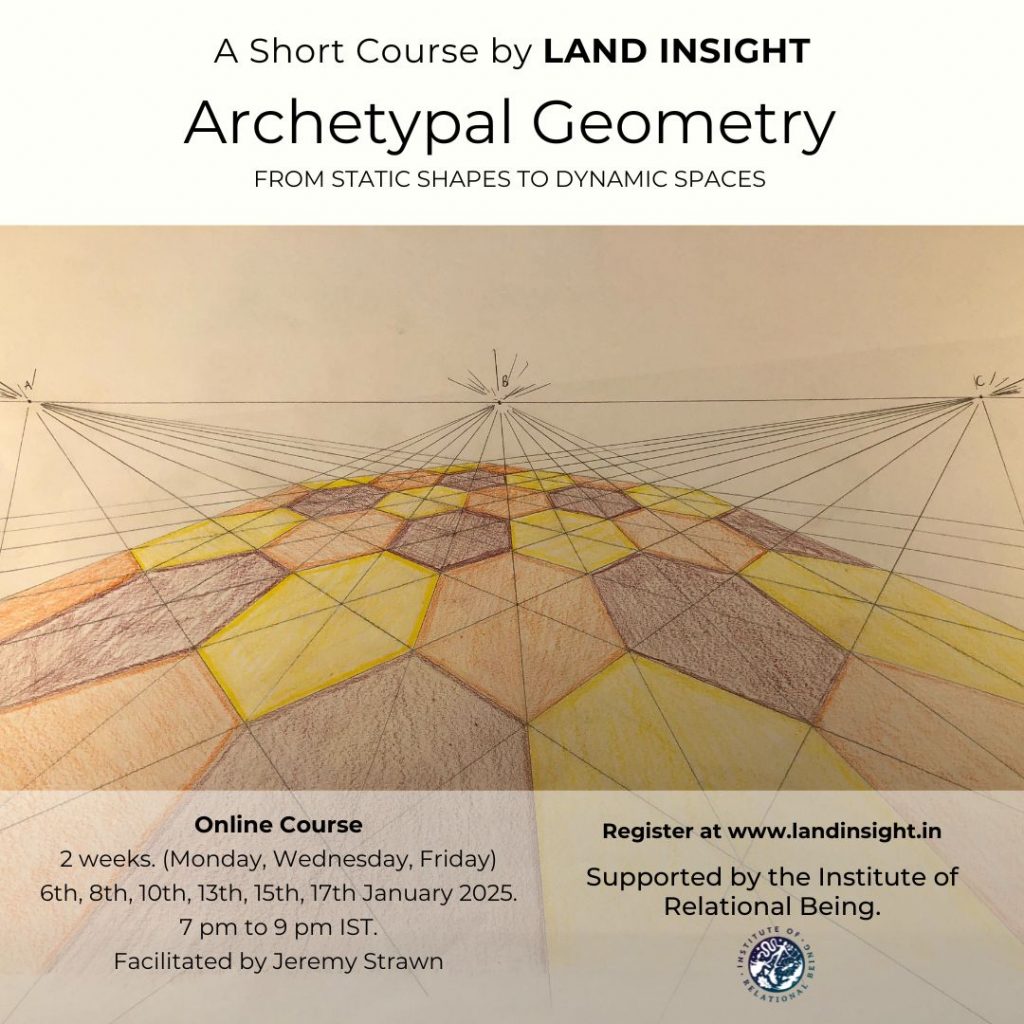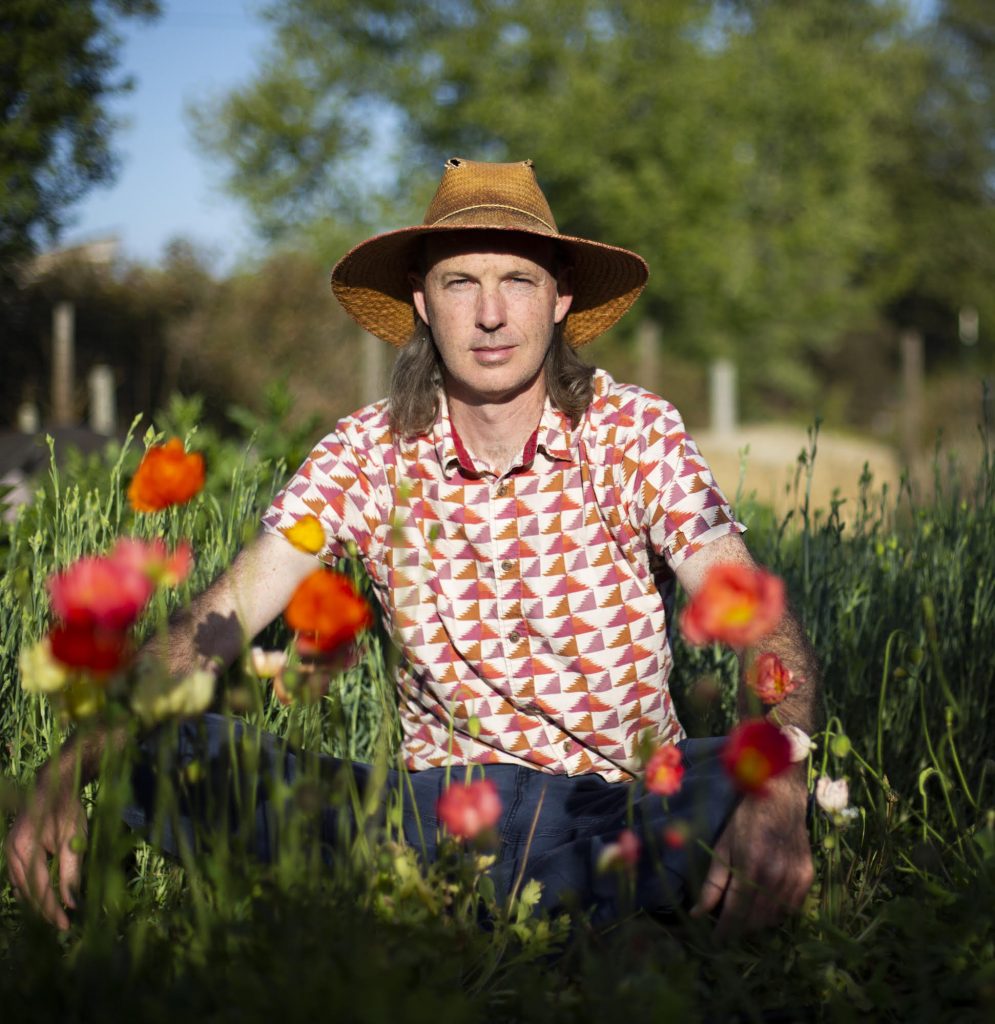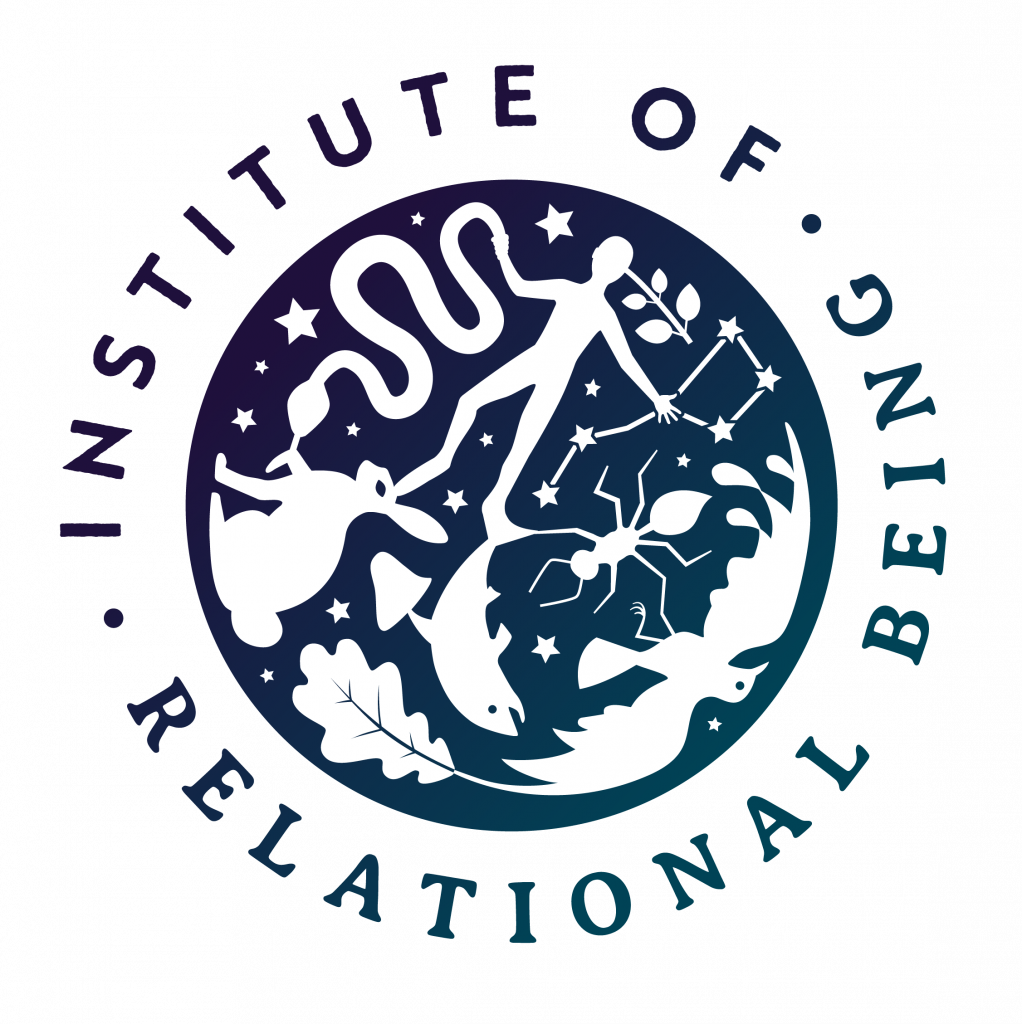Your cart is currently empty!
ARCHETYPAL GEOMETRY
FROM STATIC SHAPES TO DYNAMIC SPACES
Embark on a journey to explore geometry as a living, dynamic force that connects us to the natural world. Using simple tools—paper, pencil, straightedge, and compass—we will investigate the hidden patterns that shape the spaces we inhabit and discover new ways of relating to ourselves, others, and the cosmos.
This applied course is rooted in dialogue, drawing, and introspection, creating a participatory space for exploring the creative foundations of geometry. Over two weeks, we’ll meet in six interactive sessions (Monday, Wednesday, Friday) for a total of twelve hours, with light homework assignments to deepen your experience.
No prior experience in this field is necessary.

Outline
Location : Online
Duration : 2 weeks. (Monday, Wednesday, Friday)
Dates : 6th, 8th, 10th, 13th, 15th, 17th January 2025.
Timing : 7 pm to 9 pm IST.
Language : English
Facilitator : Jeremy Strawn
Materials needed :
- A 30cm ruler
- Blank paper (A3 size preferable, otherwise A4 or US Legal/Letter)
- Mechanical pencils (ideally, but any pencil will work, as long as it is kept sharp)
- Eraser
- Colour pencils
- A drawing compass (or anything that can be used to draw a circle)
- A geometry triangle / Set Squares
- Your openness and curiosity 🙂
Facilitator

Jeremy Strawn
Jeremy Strawn is a philosopher, teacher, farmer, and geometer. He lives in Northern California. In 2015, he completed an MA in Philosophy at the California Institute of Integral Studies, where he focused on the relationship of geometry to epistemology and the evolution of consciousness. Prior to that, he earned a Bsc in Biology, and has many years of experience working, teaching, and managing farms. Since 2007, he has been teaching geometry to high school students and adults, taking them on journeys into geometric landscapes outside the conventional Euclidean/Cartesian framework.
More about Archetypal Geometry and the Short Course
“…it is mathematics, and particularly projective geometry, which is adapted to lead human consciousness out of its present severance from the life of nature and upward to a participation therein that is at once old and new” – Owen Barfield
A profound shift is underway—a Great Turning toward new ways of thinking, perceiving, and relating to the world around us. The last two millennia have been largely dominated by Euclidean and Cartesian frameworks, which have shaped our conceptions of space in ways that separate us from the organic flow and dynamism of nature. This mindset has contributed to a growing disconnection from our environment and has left us grappling with ecological and social crises. To truly transform our relationship with the world, we need to de-center these perspectives and open up to a living, relational geometry.
This shift in understanding has deep historical roots. With the Renaissance’s exploration of linear perspective, and later, the 19th-century advent of non-Euclidean, or “projective” geometry, our understanding of space radically shifted. Projective geometry, integral to Einstein’s relativity and Dirac’s contributions to quantum theory, provides a more expansive framework for understanding the natural world that is not limited to a linear view of time, or a static, metric view of space. Yet, due to the complexity and abstraction of mathematical language, the profound implications of projective geometry remain largely unknown outside specialized fields.
This course invites participants to explore geometry not through measurements or formulas, but through a hands-on, experiential approach. Here, we focus on the processes and relationships out of which all forms arise. This requires that we engage in the unfolding of geometric structures with a conscious presence, what might be called a “participatory consciousness”.
With no previous knowledge or experience required, this course is for anyone curious to imagine space differently. Through simple geometric drawings, we’ll awaken a quality of perception that holds vast potential across diverse fields, from architecture to ecology. By practicing geometry in this dynamic way, we cultivate a holistic, ecological way of seeing that aligns us with the creative processes of life itself—offering new pathways for healing, understanding, and imagining spaces that reflect our unity with the natural world.
Ultimately, this course is more than an academic exercise; it’s an invitation to transform the way we see and create in the world. This course, then, becomes a kind of “consciousness yoga,” a meditative and therapeutic path towards reconnecting our imagination with the rhythms and mysteries of the living cosmos. Join us to rediscover geometry as an evolving art, one that bridges our inner worlds with the life of nature.
This Short Course is Recommended if …
- You’re curious to explore geometry beyond conventional ideas and want to experience it as a living, dynamic force in nature.
- You’re passionate about creating spaces in architecture, landscape, or design that are respectful with natural principles.
- You’re seeking hands-on, collaborative learning to reimagine geometry’s role in shaping our connection to the world and other beings.
- You’re interested in expanding your understanding of geometry as a bridge to deeper philosophical and ecological awareness.
Conditions of Participation
- To get the best of this course and support real transformation, you will need to participate fully in all of the sessions, as the programme is cumulative.
- Since the course is interactive, you will get the best results by joining the calls and participating live.
- There will be homework assignments between the calls, which all participants are expected to do in order to keep up with the group experience.
Tuition Fee
The tuition fees for this course directly support the work of the facilitators and Land Insight, enabling them to continue their transformative efforts in a world that urgently needs regenerative practices and fresh perspectives. By joining this course, your contribution sustains their exploration of the vital connection between geometry, design, and ecological awareness—work that resonates far beyond the classroom.
We understand that participants come from diverse financial backgrounds and aim to make this course accessible to all. To achieve this, we offer a flexible fee structure:
Standard Rate – ₹ 6000/-
Supporter Rate – ₹ 9000/-
This approach ensures inclusivity, encouraging those who can afford the Supporter rate to help make the course accessible to participants experiencing financial challenges. By choosing the Supporter rate, you empower not only those in need but also a community committed to creating respectful, life-affirming designs. If you are able, we warmly encourage you to pay the Supporter rate.
We firmly believe that financial constraints should not be a barrier to participation. If affordability is a concern, please reach out to us at landinsightinfo@gmail.com. We’re happy to discuss your circumstances and work with you to make your participation possible.
Have questions or want to know more about this short course? Please write to us at landinsightinfo@gmail.com.
